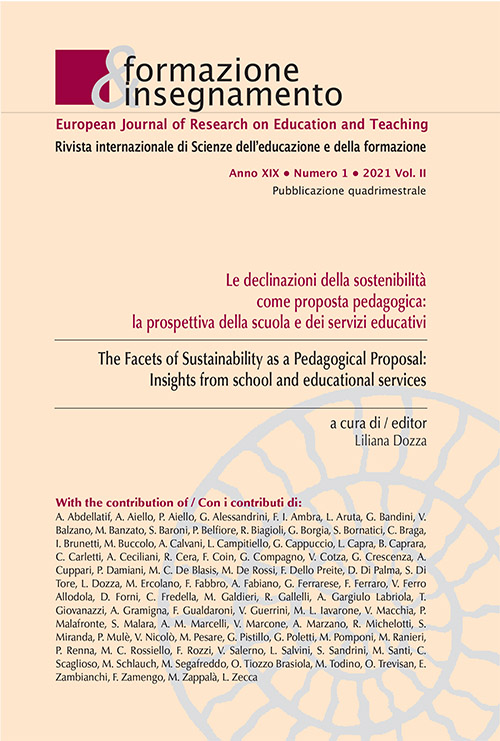Narrare la scienza: Strategie per la formazione
DOI:
https://doi.org/10.7346/-fei-XIX-01-21_32Abstract
La riflessione che presentiamo parte da una serie di considerazioni, effettuate negli ultimi anni, a fronte delle difficoltà crescenti che gli adolescenti incontrano nello studio della matematica e delle scienze della natura. La nostra proposta è in un percorso progettuale in grado di suscitare interesse e curiosità , fondato su elementi di storia della scienza, che non escludono la vita stessa degli scienziati. L'ipotesi di partenza è che studio scientifico non possa ridursi a soluzione di problemi, ad eserciziario costante ed ininterrotto sugli argomenti disciplinari. In tal modo, infatti, e con le consuete, consolidate modalità, pur riconoscendo l'importanza del come si risolve, si rischia l'inaridimento del sapere, in quanto non ci si interroga sul perché. La storicizzazione della scienza, invece, aiuta a rintracciarne le radici e, quando si serve della potenza esplicativa della narrazione, accende il desiderio di conoscere. Il raccontare infatti è connaturato al nostro essere, caratterizza la nostra identità umana che vuole apprendere. La ricaduta empirica di questa analisi è presente in altri saggi che hanno preceduto questo articolo2. Qui vogliamo soprattutto tirare le fila di una comprensione intellettuale e delle conseguenze educative di un problema oggi di stringente attualità. L'approccio metodologico con cui si imposta sia l'analisi che la proposta educativa è qualitativo, coerente con lo sfondo epistemologico, che ha un impianto ermeneutico.
##submission.downloads##
Pubblicato
Come citare
Fascicolo
Sezione
Licenza
Copyright (c) 2021 Pensa MultiMedia

TQuesto lavoro è fornito con la licenza Creative Commons Attribuzione 4.0 Internazionale.
Formazione & insegnamento è distribuita con la seguente licenza: Attribution 4.0 International (CC BY 4.0).
Per ulteriori dettagli, si rimanda alle Politiche di archiviazione e ai Termini di Copyright e Licenza.





